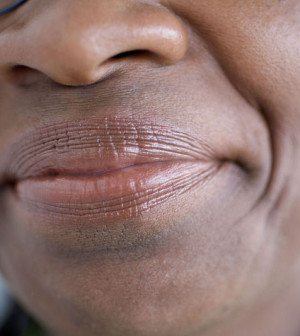- Could Your Grocery Store Meat Be Causing Recurring UTIs?
- Are You Making This Expensive Thermostat Error This Winter?
- Recognizing the Signs of Hypothyroidism
- 10 Strategies to Overcome Insomnia
- Could Artificial Sweeteners Be Aging the Brain Faster?
- Techniques for Soothing Your Nervous System
- Does the Water in Your House Smell Funny? Here’s Why
- Can a Daily Dose of Apple Cider Vinegar Actually Aid Weight Loss?
- 6 Health Beverages That Can Actually Spike Your Blood Sugar
- Treatment Options for Social Anxiety Disorder
Don’t Get Caught Without Your Sunscreen

Heading out on a warm, sunny day? Don’t forget to cover up — with sunscreen.
“Everybody — and I mean everybody — needs sunscreen,” Dr. Jennifer Caudle a family medicine physician at Rowan University School of Osteopathic Medicine in Stanford, N.J., said in a university news release.
“Your ethnicity doesn’t matter; how easily you tan doesn’t matter. If you go out in the sun without sunscreen you are putting yourself at risk for melanoma, one of the deadliest forms of cancer,” she warned.
Sunscreens carry sun protection factor (SPF) numbers, which indicate how much protection they offer against the sun’s ultraviolet radiation. The higher the SPF, the greater the protection.
A broad spectrum sunscreen protects against both ultraviolet A and ultraviolet B, both of which can damage the skin and contribute to skin cancer, Caudle explained.
“And a lot of factors can affect sunscreen performance. Swimming and sweating can wash off some sunscreens and most people don’t use enough or reapply sunscreen often enough,” she said.
Many people don’t know how much sunscreen to apply.
“On average, about one ounce. That may not seem like a lot, but it’s enough to cover your palm or fill a shot glass,” Caudle said.
She added that you should reapply sunscreen at least every two hours for maximum protection even if the sunscreen label advises differently.
More information
The U.S. Centers for Disease Control and Prevention has more on sun safety.
Source: HealthDay
Copyright © 2026 HealthDay. All rights reserved.










